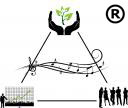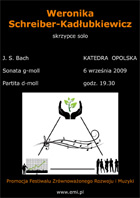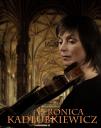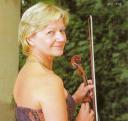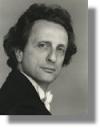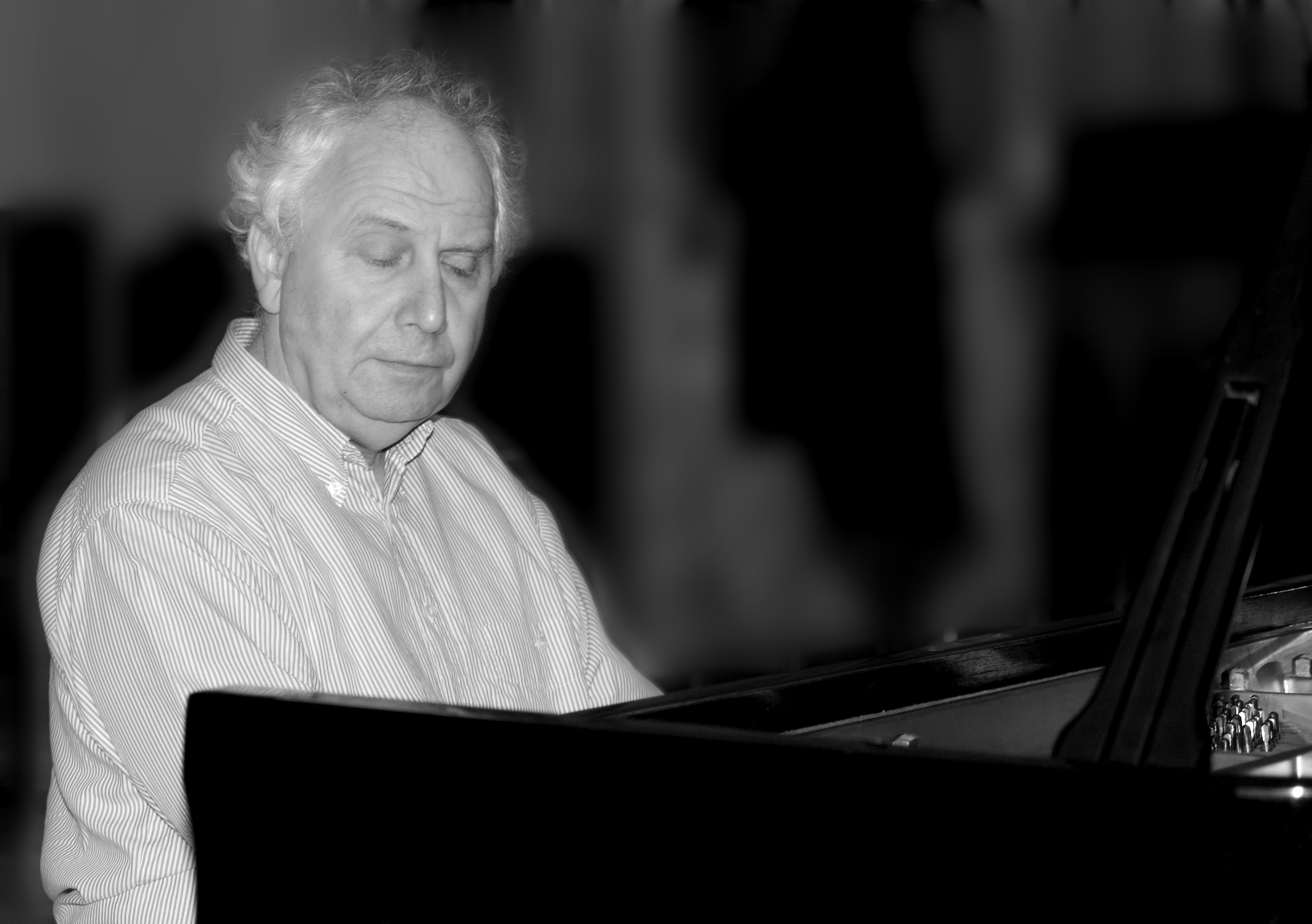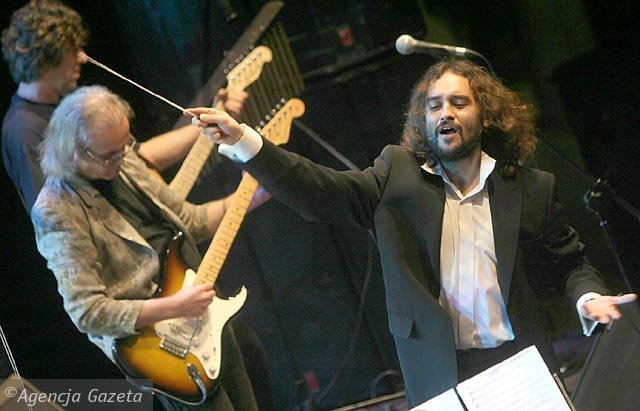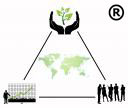PROGRAM 1
******************************************
PROGRAMMA 2
*************************************************
PROGRAMMA 3 La Danza fra 800 e 900 S.Prokofiev da Romeo e Giulietta: M.Magin: Kujawiak P.Sarasate: Romanza Andalusa M. de Falla: Danza spagnola C.Saint-Saens: Capriccio su uno Studio in forma di Walzer <<<<<<<<<<<<<<<<<<<<<<<<<>>>>>>>>>>>>>>>>>>>>>>>>>>>> F. Chopin: Polonaise in do diesis min. op.26 n.1 (pianoforte solo) H.Wieniawski: Polonaise in la maggiore |
Kategoria: A.Passigli & V.Kadlubkiewicz | Komentarze wył. »
 They’ve met in 2006 in Paris…a place between Poland and Argentina…She – Polish, born to a musical Silesian family, plays classical and contemporary music all over the worldHe – born in Argentina, the cradle of tango, to a family where everybody plays tango on different instruments…
They’ve met in 2006 in Paris…a place between Poland and Argentina…She – Polish, born to a musical Silesian family, plays classical and contemporary music all over the worldHe – born in Argentina, the cradle of tango, to a family where everybody plays tango on different instruments…
They’ve met in tango…
Duo Cordato is inviting you to a tango, an emotional journey via laughter and fascination, flirt and jealousy, passion, sensuality and love. Manuel Romero said: “Tango is not only a dance. Tango is a kind of lifestyle, state of mind and philosophy. Tango was born from the very deep inside of a human soul and therefore its language is understood by every human being.”
Tango was born in the street. Today it is being played in grand concert halls and danced everywhere.
Tango is a ballroom dance originating from Buenos Aires in Argentina and Montevideo in Uruguay. Habanera and flamenco, the Spanish traditions transplanted to South America, mixed with “candombe”, the dance of African slaves performed and sang at street parades, are at its roots. The word “cum-tan-go” is being repeated in the refrain and this is where “tango” comes from. With a time “candombe” was transformed into “milonga”.
Astor Piazzola (1921-1992) was a musical genius for whom the national dance became a raw material on the basis of which he has invented a completely new music genre. He raised the status of tango from town music to classical music. Piazzola was a great visionary composer, recognised internationally. Unfortunately, he had to fight with the lack of understanding in his own country.
Kacper Podrygajło has written: “In Piazzola’s music the Bach tradition clashes with dances originating from Buenos Aires brothels…In the Baroque tradition everything was mixed up and nobody paid attention to possible misalliance. Gigue (old French ham) was worshiped and by means of this act became an integral part of the Baroque mass. Da chiesa sonata rarely occurred alone. Suite was composed of a cycle of dancing pieces which usually differed from their original versions. We find the same in Piazzola’s music. He writes tango in such a stylized manner that each piece of music differs from each other and, at the same time, they are identical with what they do not represent. However, it does not mean that they are written in a way Bach would have written them if he had lived to our days.”
Duo Cordato with Veronica Kadlubkiewicz violin and Sebastian Cordato guitar and voice perform music of Astor Piazzola’s as well as their own improvisations on dancing music from Argentina.
Kategoria: Duo Cordato | Komentarze wył. »
Café 1930 – Astor Piazzolla.mp3
Bordel 1900 – Astor Piazzolla.mp3
Milonga del Angel – Astor Piazzolla.mp3
Kategoria: Duo Cordato, Music | Komentarze wył. »
Astor Piazzolla and dancing rythms of Argentina
about 35 minutes of music of Duo Cordato
Weronika Kadłubkiewicz violin i Sebastian Cordero guitar and singing
| Astor Piazzolla | Bordel 1900 |
| Cafe 1930 | |
| Nightclub 1960 | |
| Concert d’aujourd’hui | |
| Libertango | |
| Milonga del Angel | |
| Improvisations based on dancing music of Argentina | |
| Payadora | |
| Palomita Blanca | |
| Milonga de mis Amores | |
| Los ejes de mi carreta | |
| Nocturna | |
| Cueca del violin | |
Kategoria: Duo Cordato | Komentarze wył. »
“Astor Piazzolla i taneczne rytmy Argentyny”
Honorowy Patronat Jego Ekscelencji Ambasadora Argentyny w Polsce Pana Carlosa Alberto Passalacqua i Prezydenta Miasta Opola Pana Ryszarda Zembaczyńskiego
Duo Cordato wystąpi w Państwowej Szkole Muzycznej (PSM) w Opolu w dniu 14 października 2007 o godzinie 19:00.
Zespół w składzie Veronica Kadlubkiewicz skrzypce i Sebastian Cordero gitara oraz śpiew wykonają utwory Astora Piazzolii i improwizacje własne na tematy tanecznej muzyki Argentyny.
Przedsprzedaż biletów w Sklepie Muzycznym CODA, Opole Rynek 7. Sprzedaż biletów godzinę przed koncertem w szatni PSM. Bilety w cenie 35zł. Zniżka dla uczniów, studentów i emerytów.
Kategoria: Concerts | Komentarze wył. »
“Astor Piazzolla i taneczne rytmy Argentyny”
Honorowy Patronat Jego Ekscelencji Ambasadora Argentyny w Polsce Pana Carlosa Alberto Passalacqua
Duo Cordato wystąpi po raz pierwszy w Polsce w dniu 11 października 2007 w Galerii Zamku w Mosznej o godzinie 17:00.
Zespół w składzie Veronica Kadlubkiewicz skrzypce i Sebastian Cordero gitara oraz śpiew wykonają utwory Astora Piazzolii i improwizacje własne na tematy tanecznej muzyki Argentyny.
Bilety w cenie 25zł do nabycia godzinę przed koncertem przed Galerią.
Kategoria: Concerts | Komentarze wył. »
J.S. Bach Veronica Kadlubkiewicz skrzypce solo
Koncert muzyki skrzypcowej J.S. Bacha w Państwowej Szkole Muzycznej (PSM) w Opolu 7 października 2007 o godzinie 19:00.
W cenie biletu jest płyta z nagraniem artystki sonata a-moll BWV 1003 J.S. Bacha.
Program:
Sonata a-moll BWV 1003
Partita E-dur BWV 1006
Partita d-moll BWV 1004
Honorowy Patronat Prezydenta Miasta Opola Pana Ryszarda Zembaczyńskiego.
Przedsprzedaż biletów w Sklepie Muzycznym CODA. Zamawianie biletów pod telefonem 605259528. Sprzedaż biletów godzinę przed koncertem w szatni PSM. Cena biletów 35zł. Zniżka dla uczniów, studentów i emerytów.
Kategoria: Concerts | Komentarze wył. »
 Darmowy koncert muzyki skrzypcowej J.S. Bacha w Kosciele w Mosznej
Darmowy koncert muzyki skrzypcowej J.S. Bacha w Kosciele w Mosznej
6 października 2007 godzina 17:00.
Solistka: Veronica Kadlubkiewicz skrzypce
Program:
Sonata a-moll BWV 1003
Partita E-dur BWV 1006
Partita d-moll BWV 1004
Kategoria: Concerts | Komentarze wył. »
 16 września 2007 o godzinie 18:00 pierwszy raz w Opolu koncert zespołu The Stone w Sali Koncertowej Państwowej Szkoły Muzycznej (PSM) w Opou. Przedsprzedaż biletów w Sklepie Muzycznym CODA. Sprzedaż godzinę przed koncertem w szatni PSM. Cena biletów 35zł.
16 września 2007 o godzinie 18:00 pierwszy raz w Opolu koncert zespołu The Stone w Sali Koncertowej Państwowej Szkoły Muzycznej (PSM) w Opou. Przedsprzedaż biletów w Sklepie Muzycznym CODA. Sprzedaż godzinę przed koncertem w szatni PSM. Cena biletów 35zł.
Program: koncert typu live, improwizacje w oparciu o własne kompozycje Michała Wróblewskiego i Adama Wróblewskiego.
Honorowy Patronat Prezydenta Miasta Opola Pana Ryszarda Zembaczyńskiego.
Kategoria: Concerts | Komentarze wył. »
“…a great artist…”
Henryk Szeryng, Ann Arbor, MI
“…Her performance of Berg’s Chamber Concerto was not only perfection itself, but stands apart
as the most eloquent performance of this difficult work I have yet heard…”
Morton Feldman
“…she possesses temperament, the ability to evoke many contrasting moods, and a wide range of tone colors..”
Magil, American Record Guide
“…delicate and perceptive warmth of expression…” “effortlessly detailing each nuance of phrasing…”
Catherine Nelson, Strad, London
“…intense interpretation, profoundly vital, in perfect harmony with Mozart’s spirit…” “…authentic revelation…”
Rafael Nebot, La Provincia, Spain
“…distinct expression, impeccable sound and technique …”
Krzysztof Baculewski, Studio, Poland
“…a striding violinist with formidable modern technique, an extraordinary ear for intonation and a load of dramatic projection…”
John Dwyer, Buffalo Evening
“…she has performed two masterpieces of J.S.Bach : Sonata in g minor and Partita in d minor. Her playing perfectly mastered, the force of her attacks and retakes, the nuances and sensitivity of her interpretation immersed the audience in the atmosphere of meditation and contemplation. » L’echo, Chartres, France
Kategoria: Weronika Kadłubkiewicz | Komentarze wył. »
Karol Szymanowski Sonata d-moll Op.9.mp3 Elizabeth Wright, piano
Witold Szalonek Chaconne-Fantaisie.mp3
Grażyna Bacewicz Druga Sonata na skrzypce solo.mp3
J.S. Bach Sonata a-moll BWV 1003.mp3
Lewis Spratlan Night Music.mp3 Michael Sussman clarinet i John P.Kelly percussion
Salvatore Macchia Chamber Concerto No. 3.mp3 with musicions of University of Massachusetts in Amherst
Robert Stern Fantasy Etude.mp3
Lutosławski Partita – ad libitum (kliknij aby posłuchać utworu) Elizabeth Wright, piano
Kategoria: Music, Weronika Kadłubkiewicz | Komentarze wył. »
Firma GASPARO
GSCD-226 Music From New England (conterporary music for solo violin of american composers: Wheelock, Macchia, Spratlan, Stern)
GSCD-338 “Violin Music from Poland” (Szymanowski, Szalonek, Lutoslawski, Bacewicz)
GSCD-298 Samuel Adler: Chamber Music with Piano Trio no2 (z McDowell Trio)
GSCD-316 D.Wheelock – Sonata for Violin and Piano
GSCD-310 S. Macchia – Horn Trio
GSCD-318 J.Bolle – Duo for Violin and Bass
GSCD-315 L.Sowerby -2 Song Cycles for soprano and string quartet (with D’Anna Fortunato)
Firma CRI
CRI-808 S.Lindroth – Duo for violins ( with Curtisem Macomber)
Kategoria: Weronika Kadłubkiewicz | Komentarze wył. »
[polish]
B1. J.S.Bach skrzypce solo (około 70 min muzyki)
Sonata a-moll BWV 1003
Partita E-dur BWV 1006
Partita d-moll BWV 1004
B2. J.S. Bach skrzypce solo (około 60 minut muzyki)
Sonata g-moll BWV 1001
Partita h-moll BWV 1002
Sonata C-dur BWV 1005
Różne utwory na skrzypce solo (około 60 minut muzyki)
R1.
J.S. Bach – Sonata a-moll BWV 1003
S. Macchia – Agire (2000)
E. Ysaye – Sonata nr 6
R2.
J.S. Bach – Partita d-moll BWV 1004
B. Bartok – Sonata
R3.
J.S. Bach – Partita E-dur BWV 1006
E. Ysaye – Sonata nr 2
G.Bacewicz – Sonata
R4.
E. Ysaye – Sonata nr 2
Sonata nr 3
S. Prokofiew – Sonata
G. Bacewicz – Sonata
Koncerty skrzypcowe z orkiestrą
K1. J.S. Bach Koncert a-moll
K2. W.A. Mozart Koncert A-dur
K3. L.van Beethoven Koncert D-dur
K4. H. Wieniawski Koncert d-moll
K5. C. Saint-Saens Koncert h-moll
K6. F. Mendelssohn Koncert e-moll
K7. K. Szymanowski Koncert nr 1
K8. S. Prokofiew Koncert D-dur [/polish] [english]
B1. J.S.Bach violin solo (about 70 min of music)
Sonata A minor BWV 1003
Partita E major BWV 1006
Partita D minor BWV 1004
B2. J.S. Bach violon solo (about 60 min of music)
Sonata G minor BWV 1001
Partita B minor BWV 1002
Sonata C major BWV 1005
Violin solo – different compositions (about 60 min of music)
R1.
J.S. Bach – Sonata A minor BWV 1003
S. Macchia – Agire (2000)
E. Ysaye – Sonata No. 6
R2.
J.S. Bach – Partita D minor BWV 1004
B. Bartok – Sonata
R3.
J.S. Bach – Partita E major BWV 1006
E. Ysaye – Sonata No. 2
G.Bacewicz – Sonata
R4.
E. Ysaye – Sonata No. 2
Sonata No. 3
S. Prokofiew – Sonata
G. Bacewicz – Sonata
Concertos for violin and orchestra:
K1. J.S. Bach Concert A minor
K2. W.A. Mozart Concert A major
K3. L.van Beethoven Concert D major
K4. H. Wieniawski Concert D minor
K5. C. Saint-Saens Concert B minor
K6. F. Mendelssohn Concert E minor
K7. K. Szymanowski Concert No. 1
K8. S. Prokofiew Concert D major [/english]
Kategoria: Weronika Kadłubkiewicz | Komentarze wył. »
 They seem to have been cast in the same mould, very much like two beans in a sackful of coffee. It should be added – an exceptionally strong and aromatic coffee. Quite simply – “Doppio Espresso”.
They seem to have been cast in the same mould, very much like two beans in a sackful of coffee. It should be added – an exceptionally strong and aromatic coffee. Quite simply – “Doppio Espresso”.
They heard someone ordering a ‘doppio espresso’ in a bar and fell under the spell of the drink’s strength.
The fact that this is what they decided to call their duo tells us much about the kind of impact they want to make on listeners. Surely, their performances are not luke-warm.Interestingly enough, they became friends long before the duo saw the light of day. They were in secondary school at the time. They first met at the Piano Festival in Nałęczów and the masterclasses given there by Micha³’s father, the prominent pianist Marek Drewnowski.Daniel attended at that time the Secondary Music School in Krosno, studying in the piano class of Dorota Skibicka. He subsequently studied with Marek Drewnowski. Before he became his student, he once moved his future professor to tears with his playing of Chopin’s music. These were tears of emotion, to which the professor himself admitted. Daniel was already then a very sensitive and reflective man. He read a lot. He made much effort to strike a balance between emotion and intellect in his playing.Michał, for his part, drove to tears another outstanding pianist, Naum Shtarkman, to whom he presented his interpretation of Scarlatti’s Sonata in F minor in the same venue the previous year. Michał had always wanted to play an ambitious repertoire (Liszt, Rachmaninov) and he could listen passionately to his beloved Vladimir Horovitz, from whom he derived his musical inspiration.Studying together, Daniel and Michał continued to be close friends, even though the nature of their profession would rather provoke stiff competition between them. During their studies at the Conservatoire de Musique in Geneva (where they both went after graduating from the Music Academy in Łódź), they decided to set up a duo. They made their debut in the prestigious Victoria Hall in Geneva, with a programme including works by Leonard Bernstein and Astor Piazzolla. Right now, with Michał back in Łódź and Daniel in Krosno, their duo continues to perform and record. This debut CD is a discovery of the New World, for themselves and for music lovers. In Europe, the music of both Americas, and of South America in particular, is something new and somewhat exotic. These days it is simply fashionable, with almost all people easily recognizing the tune of Astor Piazzolla’s Libertango or the themes of Bernstein’s West Side Story. In addition to these two great masters, the CD contains miniatures by Piazolla’s artistic followers, Pablo Ziegler and José Bragato, as well as Brazilian Dance by the Canadian composer Roger Matton. This last piece is a like a symbolic blend of the CD’s two parts – the music of North and South America. It should be hoped that the great passion and commitment of the duo “Doppio Espresso” will help all listeners gain better insights into this music and fall in love with it.
Ewa Cisowska
Michał Drewnowski was born in Warsaw in 1977. He started learning to play the piano in Italy, when he was 8, under the supervision of his father, an excellent pianist Marek Drewnowski. After his return to Poland at the age of 14, he continued his musical education, at Karol Szymanowski Secondary Music School in Warsaw in the class of professor Bronisława Kawalla and Professor Ewa Pobłocka. In 2001 he graduated with honours from Bacewicz Music Academy in Łódź, where he studied under the guidance of his father, professor Marek Drewnowski. He also developed his skills in Genf Conservatory of Music with such distinguished teachers as Dominique Merlet and Pascal Devoyon; there he also obtained a diploma with distinction. He took part in many master courses given by such eminent pianists as Nauma Shtarkmann, Miłosz Magin, Fou T’song, Rudolf Kehrer and Eugen Indjic.
He is a prize-winer in the following competitions: Special Prize at the 1st Aleksander Tansman International Festival and Competition of Musical Personalities in Łódź (1996), First Prize at 13th Grażyna Bacewicz All-Polish Chamber Music Competition in Łódź (1998), at 32th Polish Piano Festival in Słupsk (1998), Second Prize at M.Masin International Piano Festival in Sangemini (Italy, 2000), Second Prize at Piano Competition A.GI.MUS in Rome (2005).
Michał Drewnowski gives concerts, both as a soloist and a chamber musician, in Poland, Italy, France, Switzerland, Luxembourg, Belgium, England, Austria, Czech Republic and Germany. He has performed with many renowned orchestras in Poland and abroad with leading conductors such as Piotr Wijatkowski, Janusz Powolny, Tadeusz Kozłowski, Vladimir Kiradjev and Stanislav Oushev. He participated in many prestigious festivals, such as Passage in Warsaw, Salon of Arts in Sofia, Festival Musicale di Norcia (Italy), Varna Summer Festival (Bulgaria), Cracow Spring Music Festival, Warsaw Music Encounter, Chopin Geneve Festival, Keminklavier in Kemi (Finland).
He also gave concerts in: Concerti Gianicolo in Rome, Steinway Kammersal in Kopenhaga, Kunstmuseum in Silkeborg (Denmark), Sala Bulgaria in Sofia, Wigmore Hall in London. In the period of 2000-2001 he participated as a pianist and also an actor at Teatr Nowy in Warsaw in a play of Adam Hanuszkiewicz “Chopin, his life, his love, his music”. He perfomed the main character – Frederic Chopin.
Michał Drewnowski is a cofounder of Voland Quartet, with which he gave concerts in many countries of Europe. They also made recordings for GEGA NEW company where they play the music of B.Bartok, A.Aroutunian, A.ben Shabetai, J.Bauer, G.Arnaoudov, H.Yotzov for two pianos and percussion. He is also a cofounder of piano duet Doppio Espresso, that specialises in music of American and Latinoamerican composeres, such as L.Bernstein, A.Piazzolla, P.Ziegler, and J.Bragato.
Daniel Eibin graduated from the Music Academy in Łódź, where he studied with Marek Drewnowski (a diploma with distinction), and the Conservatoire de Musique in Geneva, with Elizabeth Athanassova. His honours include First Prizes at the International Chamber Music Competition in Łódź (2001), the Chopin International Piano Competition in Antonin (1996) and the National Competition of Chamber Ensembles in Wrocław (1994). He is also a prizewinner of the Józef Hofmann and Ignacy Jan Paderewski Competition in Nałęczów (1997). He gave several concerts during the “Festival du Printemps – Sacre de la Musique” in France (1997). He held grants from the Minister of Culture (1996, 2001) and the Fondation Norbert Schenkel in Geneva (2004).
He perfected his skills attending masterclasses given by Janusz Olejniczak, Lee Kum Sing, Ivana Klansky, Alfonso Montecino and Eugene Indjic. He has made recordings for Polish Radio and Polish Television.
He is a co-founder of the piano duo “Doppio Espresso” which performs modern classical music. He developed a fine career, with regular performances in Poland and many European countries, both in recitals and in chamber ensembles performing music of various periods. In 2002 he began a teaching career. [/english]
Kategoria: Doppio Espresso | Komentarze wył. »
Kategoria: Doppio Espresso, Music | Komentarze wył. »
Kategoria: Doppio Espresso | Komentarze wył. »
For 2 piano
Astor Piazzolla : Libertango ( 6′)
Suite Porteña de ballet (12′)
Le Grand Tango (12′)
Milonga del Ángel (6′)
Leonard Bernstein : Symphonic Dances to WEST SIDE STORY (23′)
Pablo Ziegler : Milongueta (11′)
Asfalto (7′)
Sandunga (5′)
José Bragato : Guarania y Galopa Paraguaya (5′)
Roger Matton : Danse brésilienne (5′)
George Gershwin : Amerykanin w Paryzu (18′)
Błekitna Rapsodia (18′)
Koncert fortepianowy (16′)
****
Witold Lutoslawski : Wariacje na temat Paganiniego (7′)Francis Poulenc : Sonata na 2 fortepiany (15′)
Fryderyk Chopin : Rondo na 2 fortepiany (6′)
Maurice Ravel : Ma Mère l’Oye (15′)
La Valse (12′)
For Four-Hands
Astor Piazzolla : Cztery Pory Roku (20′)
George Gershwin : Summertime (4′)
I love you Porgy (5′)
****
George Bizet : Zabawy dziecięce (Jeux d’enfants) (28′)
Maurice Ravel : Ma mère l’Oye (15′)
La Valse (12′)
Gabriel Fauré : Suita DOLLY (16′)
Maurycy Moszkowski : Tance Hiszpańskie op. 21 (14′)
Tance Polskie op. 55 (12′)
Erik Satie : Trois morceaux en forme de poire (10′)
En habit de cheval (6′)
[/english]
Kategoria: Doppio Espresso | Komentarze wył. »
The Stone group was formed in 2003. Its members are Michał Wróblewski, playing the violin, and Adam Wróblewski, playing the cello. The Stone is an aviant-garde group, whose compositions are based on trance music, and that it why the goal of the concerts is to create a suggestive trance similar to ritual music from various cultures (elements of Oriental music, psychedelic rock and free jazz). Trying to define their work, the group uses the term electrosonoromedium (musicians are the medium of the new electro-acoustic sound). A concert is divided into thematically interrelated sets, improvised based on the prepared form. In 2005, in Leipzig, a premiere of the spectacle “Mom, let me dance Mahler” by the “Cinema” Theater, with music of the group, took place.
Michał Wróblewski is a graduate of the Academy of Music in Wrocław, Prof. Marek Pijarowski’s conductor’s class. He started his musical education at the age of 7 in the State Music School of the 1st grade in Wrocław, learning to play the violin. He earned his Professional Instrumentalist Diploma specializing in violin playing, studying under the supervision of an excellent violinist Prof. Michał Grabarczyk in Poznań. He cultivated his skills by attending international violin competitions with such masters as, among others, Prof. R. Totenberg (USA), R. Szreder (The Netherlands), K. Węgrzyn (Germany) and a conducting course under the guidance of Maestro Kurt Masur. As participant of modern music courses, he learned from Prof. S. Esztenyi and Prof. H. Fiore. Michał Wróblewski has been involved in chamber music for many years (winner of chamber music competitions). Being a member of the groups “Wróblewski – Trio,” “Musica Poetica Nova,” he took part in many festivals (among others “Wratislavia Cantans,” “Where the Fountains Play”) and his performance was often recorded for the needs of the radio, television, and movie industry. He conducted music workshops with theatrical groups from Poland and Germany (including graduates of Kolleg für dramatische Kunst in Bremen). His debut as a conductor took place in March 2004, in “Oratorium Marianum” Hall of the University of Wrocław, during the “Classic Premiere” festival. Wróblewski’s repertoire includes works of each kind of music, from classical to rock music.
Adam Wróblewski is a student of the Academy of Music in Poznań in Eugeniusz Zboralski’s cello class. He started his musical education at the age of 7, learning in music schools in Wrocław and Poznań. He cultivated his artistic skills by attending international cello courses, perfecting performance with such masters as, among others, Prof. R. Jabłoński (Spain), Prof. K. Michalik, Prof. S. Firlej and by attending modern music courses conducted by Prof. B. Schaeffer and Prof. S. Esztenyi. A winner of chamber music competitions, he has been involved in this music for many years. As a member of the groups “Wróblewski – Trio,” “Musica Poetica Nova,” he took part in many festivals (among others “Wratislavia Cantans,” “Where the Fountains Play”) and his performance was often recorded for the needs of the radio, television, movie industry and theater. From 2001 to 2003 he cooperated with the Sachsen-Anhalt Youth Symphony Orchestra. In 2002 Wróblewski took part in the Visegrád Youth Philharmonic tour through Poland, Hungary, the Czech Republic, and Slovakia.
Kategoria: The Stone | Komentarze wył. »
The repertoire of The Stone consists of original compositions, improvisations on previously agreed on themes. Each concert of The Stone offers different music, although the compositions have their titles:SINBAD THE SAILOR
OSIRISATION
LETTER TO E
MENTAL INSTITUTION
COSMIC TRAIN
McD
CALCULATING MACHINE FROM THE ATTIC
Kategoria: The Stone | Komentarze wył. »
The Company offers:
– workshop in the subject of sustainable development management, also from the aspect of an individual
– musical setting for national and international events like conferences, conventions, seminars, symposiums, marketing presentations, business meetings, banquets, jubilee celebrations, exhibitions and vernissages, as well as family events
– impresario
– concerts, festival, competitions for biznes and communes
Kategoria: Offer | Komentarze wył. »
romans-e-dur-aleksander-zarzycki.mp3
mazurek-g-dur-aleksander-zarzycki.mp3
krakowiak-roman-statkowski.mp3
burleska-adam-andrzejowski.mp3
capriccio-valse-e-dur-op-7-henryk-wieniawski.mp3
chanson-polonaise-op-12-nr-2-henryk-wieniawski.mp3
kujawiak-a-moll-henryk-wieniawski.mp3
legenda-g-moll-op-17-henryk-wieniawski.mp3
nokturn-cis-moll-op-posth-nr-20-fryderyk-chopin.mp3
polanaise-brillante-a-dur-op-21-henryk-wieniawski.mp3
scherzo-tarantelle-g-moll-op-16-henryk-wieniawski.mp3
valse-h-moll-op-69-nr-2-fryderyk-chopin.mp3
Magdalena Rezler Niesiołowska skrzypce
SINFONIETTA BYDGOSTIENSIS
Maciej Niesiołowski dyrygent
Kategoria: Magdalena Rezler-Niesiołowska, Music | Komentarze wył. »
1797-1997 Franz Schubert Bicentenary Edition – Andrea Passigli – piano
Editor: foné 97F 01/02
CD I Sonata B-dur op. posth. D 960
Scherzo Allegro vivace con delicatezza.mp3
Rondo Allegro ma non troppo.mp3
CD II 4 Impromptus op. 90 D 899
cis-moll Allegro molto moderato.mp3
CD II 6 Moments Musicaux op. 94 D 780
Kategoria: Andrea Passigli, Music | Komentarze wył. »
Jerzy Maciejewski began to study piano at the age of five and continued very extensive music education until he became a student at The Fryderyk Chopin Warsaw Academy of Music. He received master’s degree in piano as a student of Maria Wilkomirska. Jerzy Maciejewski is currently the Professor at The Warsaw Academy of Music in Warsaw and Visiting Professor Kaemyung – Chopin Academy in Daegu (South Korea). Every year he is being invited to give workshops and seminars at the Master’s Training Programs in Poland and abroad, for instance at The Wiener Musik Seminars in Vienna, Austria. He is also participating in a special music events for children and young audience organized by National Philharmonics in Poland.
His artistic career was launched when he was still a student at The Academy of Music. Being a member of The Fryderyk Chopin’s Society in Poland, he gave a number of piano concerts. As a talented pianist he was granted multiple scholarships from The Fryderyk Chopin’s Society.
During his artistic career Jerzy Maciejewski cooperated very closely with The Fryderyk Chopin’s Society of Warsaw. During that time he gave a number of recitals in places where Fryderyk Chopin was born and lived. The examples of concerts in such places are: Chopin Family’s house in Żelazowa Wola where Chopin was born, and concerts at the Chopin’s Monument at Łazienki Park in Warsaw. The pianist participated in many prestigious piano festivals, e.g. in Duszniki and Słupsk, Poland. He was invited to participate in philharmonic performances in Poland and most of the European countries as well as in South Korea and Mexico. During the last few years he performed a wide variety of classical and contemporary music; for example music by George Crumb and Stanisław Moryto.
Jerzy Maciejewski performed many of original works of contemporary composers as solo concerts as well as with chamber, and philharmonic orchestras.
Within the several years, an artist was particularly interested in working with chamber groups, and outstanding polish musicians. Together they gave many chamber performances in Poland and abroad. Jerzy Maciejewski is the creator of The Ignacy Jan Paderewski’s Piano Trio Group and co-creator of The Camerata Vistula Chamber Music Group in Poland.
An artist recorded complete works of Karol Szymanowski for violin and piano together with violinist Magdalena Rezler, as well as songs of Fr. Chopin and I. J. Paderewski sung by Ewa Izykowska.
He is also known as an interpreter of music for two pianos and drums by Bela Bartok and George Crumb in cooperation with Stanisław Skoczynski.
On average he performs about 60 concerts per year, solo or with other artists and/or orchestras.
Kategoria: Jerzy Maciejewski | Komentarze wył. »
The Opole String Quartet Quodlibet was formed by graduates of the Academies of Music in Wroclaw and Katowice, musicians from the Józef Elsner State Philharmonic Orchestra in Opole.
Members of the quartet:
Jacek Adamaszek – violin,
Barbara Zwolińska-Kobiela – violin,
Łucja Butor – cello,
Dariusz Stark – viola.
The group has a very wide and varied repertoire. It plays great compositions of classical and light music, including very popular pieces. Since its beginning, it has successfully contributed to many significant and important events for Opole city and the whole Opole region.
Ms. Dorota Simonides, Senator of the Republic of Poland, Prof., PhD, expressed her appreciation: “Whenever I listen to you, each time I enter the magic world of music. It is not only the occasion to calm myself down and a means of escape from hurry-scurries, but it allows me to transfer to a dimension of harmony and beauty, where I restore my strength and revive my spirit for further action. Except my gratitude and wishes of further successes.”
Kategoria: Quodlibet | Komentarze wył. »
Class Jam-Quartet merges the beauty of classical music with jazz. Its goal from its conception was to combine everlasting achievements of the past with modern times. Chopin once said: “Bach resembles an astronomer to me – some people seem to notice nothing more but complex algorithms in him, but others, who can feel and understand him, are led by Bach to his huge telescope through which he allows them to admire the stars of his masterpieces. If any generation turns it back on Bach, it will give a sad witness of its shallowness, foolishness and bad taste.”
They start each concert with Bach. Jazz adaptations of classical works are written for the group by Michał Wróblewski.
Members of the quartet:
Weronika Kadłubkiewicz – violin,
Michał Wróblewski – violin,
Adam Wróblewski – cello,
Juliette Ciesla – piano.
Their first concert was in May 2008, in Paris, and it received an enthusiastic reception.
Juliette Ciesla A French pianist, Juliette Ciesla, born in 1971 graduated from Conservatoire National de Region de Lyon in 1990 with a gold medal. In that same year she was accepted at Conservatoire Superieur de Musique (CNSM) in Paris, to the Dominique Merlet’s class. She is a CNSM prize winner in piano (Georges Pludermacher’s class), chamber music (Christian Ivaldi’s and Alain Planes’ class), as well as in accompanying the singing, which she later perfected under such Lieder masters as Hartmut Holl, Mitsuko Shirai, Gerard Souzay, and Kurt Moll. She worked on the piano repertoire in Clive Britton’s class, a former student of Claudio Arrau and continues her education under the supervision of Marie-Francoise Bucquet and Jorge Chamine in Paris and in Italy. As a soloist, Juliette Ciesla regularly gives concerts in Paris (“les journees du Vaisseau Fantome,” Sala Cortot, Saint Merry Church, Cercle Bernard Lazard) and throughout France. In 2001 she had a tour in France for Yamaha pianos. In 2003, during the International Miłosz Magin Competition, she received a reward for the best performance of Frédéric Chopin’s Mazurka op. posthume. In 2005, supported by Paris association “Jeunes Talents” and France Musique radio, she was invited to de Gaelle Le Gallic “Dans la Cour des Grands” program.Apart from France, Juliette Ciesla gave concerts as a soloist in the 2nd Frédéric Chopin Piano Concert in Italy and Germany, and in recital programs. With her brother Alexis Ciesla (clarinet, CNSM First Prize in Geneva) she performs duet “Paris-Varsovie,” promoting Polish and French music (their father is a Pole, and mother a Frenchwoman). Currently Juliette Ciesla divides her time between Paris and Annecy, where she teaches at the CRR Conservatory.
Veronica Kadlubkiewicz graduated with highest honors of the Warsaw Academy of Music in Poland and continued her studies in the USA with Henryk Szeryng, Roman Totenberg and Paul Zukofsky. Finalist of the Alberto Curci Competition in Naples, Italy, she received a special award from the Rockefeller Competition for Excellence in American Music in Washington D.C. Ms. Kadlubkiewicz has appeared as soloist with orchestras in the USA, Poland, Italy and Spain. She has also frequently performed at such festivals as Marlboro Music, Bach Aria Festival, Monadnock Music, Estatedi Radicondoli, Musica Electronica Nova and Warsaw Autumn Festival. An avid performer of solo violin recitals sought out for her interpretations of contemporary music, each year she premieres new compositions written for her. She was a participant in the Sommerkurs fur Neue Musik in Darmstadt and a member of Creative Associates in Buffalo, NY.Formerly concertmaster of the Polish Chamber Orchestra, Orquesta Filarmónica de Gran Canaria and the New Hampshire Symphony, Veronica Kadlubkiewicz has also played with the Orpheus Chamber Orchestra, the Boston Symphony Orchestra, and the New England Camerata. She taught violin and chamber music at the University of Massachusetts in Amherst, Smith College and Amherst College.Ms. Kadlubkiewicz now resides in Paris, France where she has appeared at Salle Cortot; Ecole Normale Supérieure, rue d’Ulm; St. Julien le Pauvre; and Eglise de Trinité among others. Last season she performed in Italy, the USA, Poland, France and premiered compositions by Francois Nicolas, Salvatore Macchia and Beatriz Ferreyra, all written for her. The season 08/09 will see her giving many “all Bach” presentations of his solo violin works, the Concerto by Philip Glass as well as piano-violin recitals.Ms. Kadlubkiewicz has recorded for Gasparo and CRI labels, Polish Radio, and WDR in Germany.
Adam Wróblewski is a student of the Academy of Music in Poznań in Eugeniusz Zboralski’s cello class. He started his musical education at the age of 7, learning in music schools in Wrocław and Poznań. He cultivated his artistic skills by attending international cello courses, perfecting performance with such masters as, among others, Prof. R. Jabłoński (Spain), Prof. K. Michalik, Prof. S. Firlej and by attending modern music courses conducted by Prof. B. Schaeffer and Prof. S. Esztenyi. A winner of chamber music competitions, he has been involved in this music for many years. As a member of the groups “Wróblewski – Trio,” “Musica Poetica Nova,” he took part in many festivals (among others “Wratislavia Cantans,” “Where the Fountains Play”) and his performance was often recorded for the needs of the radio, television, movie industry and theater. From 2001 to 2003 he cooperated with the Sachsen-Anhalt Youth Symphony Orchestra. In 2002 Wróblewski took part in the Visegrád Youth Philharmonic tour through Poland, Hungary, the Czech Republic, and Slovakia.
Michał Wróblewski is a graduate of the Academy of Music in Wrocław, Prof. Marek Pijarowski’s conductor’s class. He started his musical education at the age of 7 in the State Music School of the 1st grade in Wrocław, learning to play the violin. He earned his Professional Instrumentalist Diploma specializing in violin playing, studying under the supervision of an excellent violinist Prof. Michał Grabarczyk in Poznań. He cultivated his skills by attending international violin competitions with such masters as, among others, Prof. R. Totenberg (USA), R. Szreder (The Netherlands), K. Węgrzyn (Germany) and a conducting course under the guidance of Maestro Kurt Masur. As participant of modern music courses, he learned from Prof. S. Esztenyi and Prof. H. Fiore. Michał Wróblewski has been involved in chamber music for many years (winner of chamber music competitions). Being a member of the groups “Wróblewski – Trio,” “Musica Poetica Nova,” he took part in many festivals (among others “Wratislavia Cantans,” “Where the Fountains Play”) and his performance was often recorded for the needs of the radio, television, and movie industry. He conducted music workshops with theatrical groups from Poland and Germany (including graduates of Kolleg für dramatische Kunst in Bremen). His debut as a conductor took place in March 2004, in “Oratorium Marianum” Hall of the University of Wrocław, during the “Classic Premiere” festival. Wróblewski’s repertoire includes works of each kind of music, from classical to rock music.
Kategoria: Class Jam-Quartet | Komentarze wył. »
Michał Wróblewski, conductor, arranger and violinist is a musician with interesting personality. He is a graduate of the Academy of Music in Wrocław, Prof. Marek Pijarowski’s conductor’s class.He started his musical education at the age of 7 in the State Music School of the 1st grade in Wrocław, learning to play the violin. He earned his Professional Instrumentalist Diploma specializing in violin playing, studying under the supervision of an excellent violinist, Prof. Michał Grabarczyk in Poznań. He cultivated his skills by attending international violin competitions with such masters as, among others, Prof. R. Totenberg (USA), R. Szreder (The Netherlands), K. Węgrzyn (Germany) and by attending a conducting course under the guidance of Maestro Kurt Masur. As an attendant of modern music courses, he learned from Prof. S. Esztenyi and Prof. H. Fiore. As a winner of chamber music competitions, he has been involved in this music for many years. Being a member of the groups “Wróblewski – Trio,” “Musica Poetica Nova,” he took part in many festivals (among others “Wratislavia Cantans,” “Where the Fountains Play”) and his performance was often recorded for the needs of the radio, television, and movie industry. Michał Wróblewski conducted music workshops with theatrical groups from Poland and Germany (including graduates of Kolleg für dramatische Kunst in Bremen). His debut as a conductor took place in March 2004, in “Oratorium Marianum” Hall of the University of Wrocław, during the “Clasic Premiere” festival. Wróblewski’s repertoire includes works of each kind of music, from classical to rock music.
The review in AG in 2006 “Rock’n’Rollers in the Wild West” by Grzegorz Cholewa:
“All music projects which tried to smash rock with classical music, were always, as it were, total in their nature. “The Shadows of Wrocław” was no exception. On Sunday over sixty musicians stood on the floor of the hall of the Film Production Company: four-person rock group Nurt and symphonic Visegrád Youth Philharmonic Orchestra, formed by under-age students of music schools in Poland, Hungary, Slovakia and the Czech Republic.
A year ago, at the Visegrád Festival, young musicians handled successfully jazz-rock acrobatics of Voo Voo – now they had to face the rock classics. This time led by Michał Wróblewski, symphonists played with admirable discipline, vigor, and rock gusto, seasoning almost half-century-old hits with completely new emotions.Very original arrangements were astonishing. A large part of the credit goes to the conductor who had been preparing the orchestra for almost half a year for the Sunday concert. Michał Wróblewski’s contribution to independence of the arrangements is obvious – the group and orchestra matched perfectly and complemented each other. On the other hand – if their parts were listened to independently from each other, the effect would be equally interesting and complete.Overall, seventeen pieces were played, most from the repertoire of the legendary group The Shadows: “Atlantis,” “Wonderful Land,” “Guitar Tango,” “Apache,” “Kon Tiki,” and “Man of Mystery.” Moreover, there was a standard Duke Ellington’s “Caravan” and a beautiful version of the Beatles’ “Michelle.” As befitting for such oldish songs, everything was enshrouded in a beat music atmosphere. Although tuneful and catchy melodies notoriously got into almost cowboy style, the audience had no objections at all. Several hundred people, most of whom likely remember the times of The Shadows, went wild with enthusiasm, at the end refusing to let the musicians leave the stage!The Sunday concert “The Shadows of Wrocław” is a dream come true for Alek Mrożek, the guitarist from Wrocław, who had waited for it for years. The project proved to be a complete success but the valid question is: what’s next? A CD or DVD? A series of exclusive concerts? Such a trip into the old times of the world rock has a universal value.”
Kategoria: Michał Wróblewski | Komentarze wył. »
Adam Wróblewski jest studentem Akademii Muzycznej w Poznaniu w klasie wiolonczeli Eugeniusza Zboralskiego. Swoją edukację muzyczną rozpoczął w wieku lat 7 kształcąc się w szkołach muzycznych Wrocławia i Poznania. Umiejętności artystyczne pogłębiał na międzynarodowych kursach wiolonczelowych doskonaląc się u takich mistrzów jak m.in. prof. R. Jabłoński (Hiszpania), prof. K. Michalik, prof. S. Firlej oraz kursach muzyki współczesnej u prof. B. Schaeffera, prof. Sz. Esztenyi’ego. Od wielu lat zajmuje się muzyką kameralną (laureat konkursów muzyki kameralnej). Jako członek zespołów: “Wróblewski – Trio”, “Musica Poetica Nova” brał udział w wielu festiwalach (m. in. “Wratislavia Cantans”, “Tam gdzie biją źródła”) oraz dokonał licznych nagrań dla potrzeb radia, telewizji i filmu oraz teatru. W latach 2001-2003 współpracował z Młodzieżową Orkiestrą Symfoniczną Sachsen-Anhalt. W 2002 r. brał udział w tournee Młodzieżowej Filharmonii Wyszehradzkiej po Polsce, Węgrzech, Czechach i Słowacji.
Kategoria: Adam Wróblewski | Komentarze wył. »
Wiolonczela solo
Jan Sebastian Bach – Suita nr 1 BWV 1007
Jan Sebastian Bach – Suita nr 2 BWV 1008
Jan Sebastian Bach – Suita nr 3 BWV 1009
Gaspar Cassado – Suita na wiolonczelę solo (1926)
cz. I Preludio – fantasta
cz. II Sardana (Danza)
cz. III Intermezzo e danza finale
George Crumb – Sonata na wiolonczelę solo
Berthold Hummel – Fantasia nr 2 na wiolonczelę solo
Kameran Ince – MKG Variations na wiolonczelę solo
Tadeusz Maklakiewicz – Suita na temat chorału J. S. Bacha „Ach, wie flichtig, ach wie nichtig”
Krzysztof Meyer – Moment Musical
Krzysztof Penderecki – Capriccio per Siegfried Palm (1968)
Wiolonczela i fortepian
Johannes Brahms – Sonata e-moll na wiolonczelę i fortepian op.38
Max Bruch – Kol Nidrei op. 47
Fryderyk Chopin – Sonata g-moll na fortepiano i wiolnczelę op. 65
Claude Debussy – Sonata d-moll na wiolonczelę i fortepian
Gabriel Fauré – Elégie op. 24
Bohuslav Martinu – Sonata nr 3 na wiolonczelę i fortepian
Bohuslav Martinu – Wariacje na temat Rossiniego
Sergiusz Rachmaninow – Sonata g-moll na fortepian i wiolonczelę op.19
Camille Saint-Saëns – Allegro Appassionato op.43
Wiolonczela i komputer
Paweł Mykietyn – Kartka z albumu na wiolonczelę i komputer (2002)
Wiolonczela i orkiestra
Max Bruch – Kol Nidrei na wiolonczelę i orkiestrę op. 47
Gabriel Fauré – Elégie na wiolonczelę i orkiestrę op. 2
Joseph Haydn – I koncert wiolonczelowy C-dur Hob.VIIb/1
Joseph Haydn – II koncert wiolonczelowy D-dur Hob.VIIb/2
Dymitr Kabalewski – I Koncert wiolonczelowy g-moll, op. 49
Sergiusz Prokofiew – Concertino na wiolonczelę i orkiestrę g-moll, op. 132
Camille Saint-Saëns – I koncert wiolonczelowy a-moll op. 33
Kategoria: Adam Wróblewski | Komentarze wył. »
